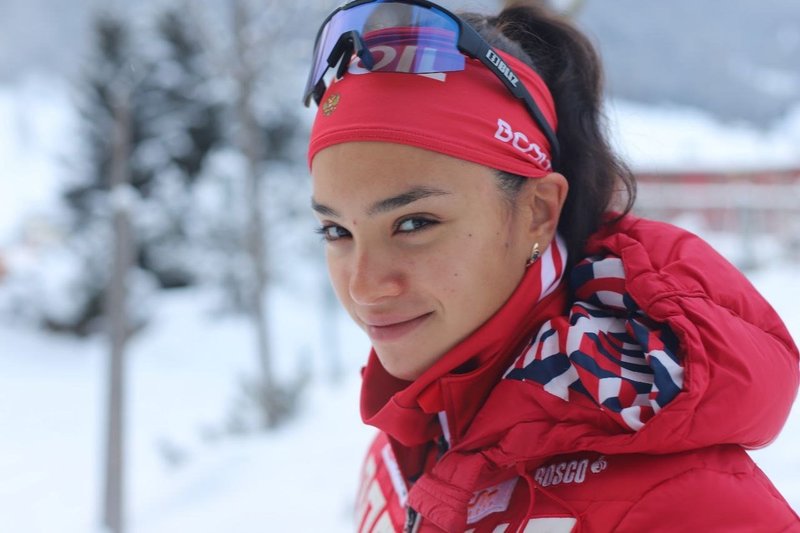In the last column, I spent quite a bit of time talking about what bothers me, what I don’t have time for, and what doesn’t interest me.
And why are there?
It’s very simple – I spend almost all my free training time on something that is close to my job and my career.
The most important thing is applied knowledge. The study of physiology, biomechanics, the construction of the training process, recovery methods. Recently, sports nutrition has been added – the science of the interaction of nutrients and their effect on the athlete’s body.
…Boring? Not at all, if you want to understand why this or that work is done in class today and why the coach forces you to endure today (or on the contrary slows down when you fly).
An Olympic medal opens many doors and gives you many opportunities. Including communication with outstanding athletes from other sports. And here’s one of the things I’ve been convinced of over the past six months.
All more or less successful athletes come to realize that the most important and exciting thing in their lives is their own body. It’s a car that’s always with you, and you won’t change it for a new one. You can only watch carefully and prevent damage. This understanding only comes to the majority at the end of their career. What to expect if there are every opportunity to immerse yourself in this knowledge at the very beginning – with a coach?
A coach is usually the most important person for an ambitious athlete. The last word must always remain with the mentor – otherwise chaos. But it’s stupid to automatically do everything you’re told… At the same time, even the coach himself has a lot of people like you. Be ahead of him at least a multiple Olympic champion. Your “communication sessions” must be short, rich, specific. Communication in the spirit of “Oh, Marya Petrovna, I have a prick in my side!” should be left somewhere on the regional departures level. By the time you hit the sports master, you should already be clear about what exactly is on that side and why it can hurt there. What is important is not only the dialogue, but the interactions at a certain level of knowledge.
Now “intelligent machines” are interfering more and more in this dialogue – and they are developing all the time. For example, one of the devices I always have on my arm measures training load based on the duration of my training in certain heart rate zones, which in turn is based on my maximum heart rate.
Once was probably a fantasy, although I trained with such watches almost all my life. But here it is rather a passing function, especially this device is needed for a completely different purpose. It is believed that in 2022 it is its algorithms that most accurately determine the recovery of the body after the load given to it. And recovery recommendations are based on at least four factors: heart rate variability, resting heart rate, respiratory rate, and hours slept. Here it was already necessary to superimpose my subjective feelings on objective data and, together with the trainer, to deduce the optimal ratio of training and rest. It proves? Well, you saw something last winter, the preparation for the main races of the season was quite successful I think.
Not all interests are static.
From a certain point in his career… no, not true. And the truth looks like this: from my first prize money in an international career, I was interested in everything related to the financing of international sport, the link between television, advertising, sponsors and athletes. Who orders the music, who pays for it? What is our role, what can we do better in this relationship system – for the development of our sport and for us personally? Why five years ago you could race with any ski boots, and now the contracts with the sponsors are strictly according to the “skis + boots” scheme? Why are premiums increasing in biathlon and falling in skiing? Why don’t we use the marketing moves that have become commonplace in other sports? The interest in sports marketing, sports financing is serious and for a long time. I think I will find myself in this field after the end of my sports career.
Of course, trying to improve English takes a long time. The best way is conversations and correspondence with native speakers. I have always had enough sociability, in January 2019 I went to meet Frida Karlsson, who then flashed at the world junior championship. That was how long ago! Then I couldn’t really speak – but somehow they explained themselves.
I approached my debut at the Adult World Cup with a lot more confidence. In training before the Worlds in Davos last year, we chatted with Helena Fossesholm for an hour about everything: training, competition, food and studies. It was easy to talk – almost three years of study paid off. It’s really interesting for me to compare our life and work with Norwegians, Swedes, Germans – to learn something, to be frank about something. English is a tool.
I can’t remember who said “if your hobby doesn’t match your job, change jobs”. Mine, as you can see, are the same – I wish you the same.
Source : MatchTV
I am Sandra Jackson, a journalist and content creator with extensive experience in the news industry. I have been working in the news media for over five years. During this time, I have worked as an author and editor at various outlets producing high-quality content that attracts readers from different demographics.




